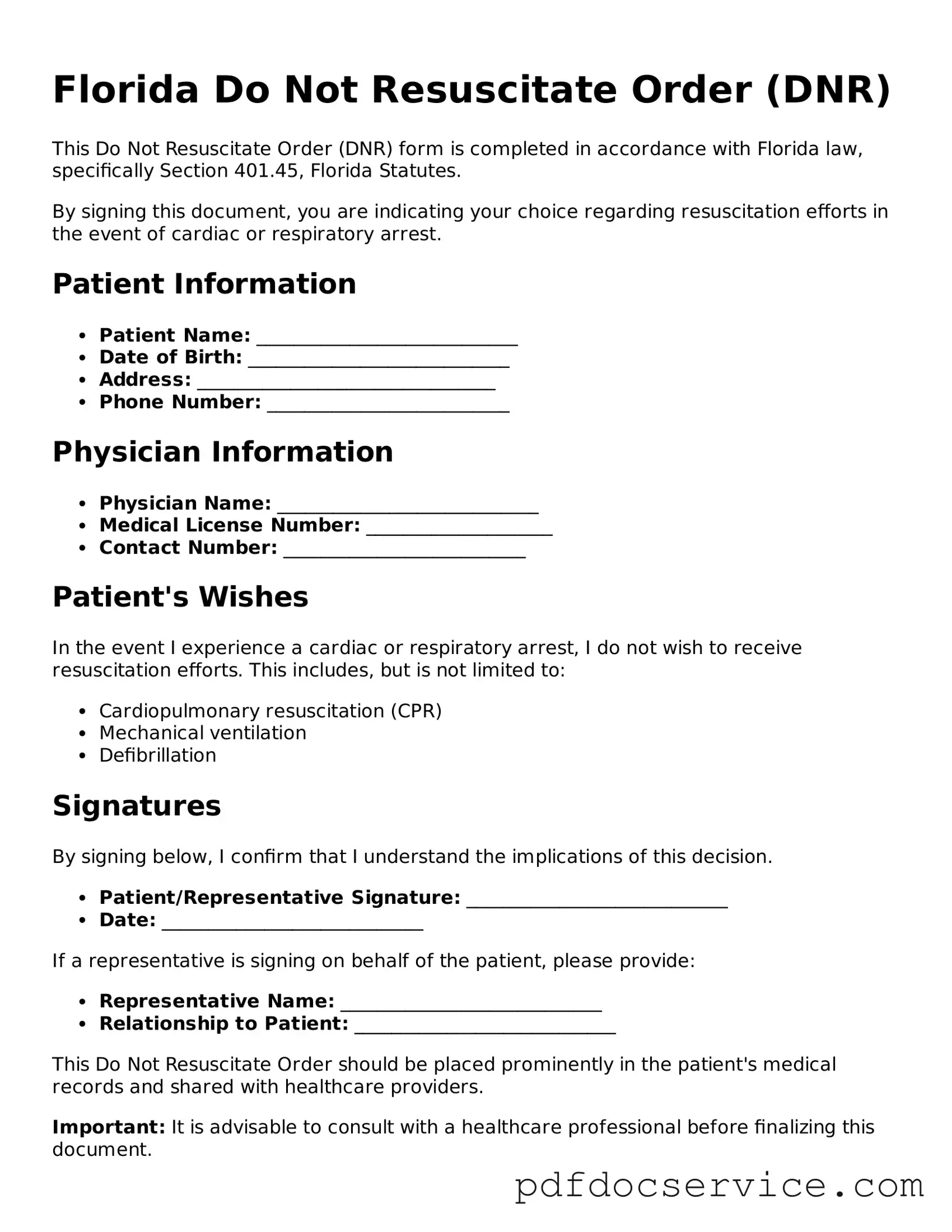What is a Florida Do Not Resuscitate Order (DNRO)?
A Florida Do Not Resuscitate Order is a legal document that allows a person to refuse resuscitation efforts in the event of a cardiac arrest or respiratory failure. This order is designed for individuals who wish to avoid aggressive life-saving measures, such as CPR, if their heart or breathing stops.
Who can complete a DNRO?
Any adult who is capable of making their own healthcare decisions can complete a DNRO. This includes individuals who are terminally ill or have a chronic medical condition. Additionally, a legal guardian or healthcare proxy can complete the order on behalf of someone who is unable to do so.
You can obtain a DNRO form from various sources, including:
-
The Florida Department of Health website
-
Hospitals and healthcare providers
-
Legal offices that specialize in healthcare law
Make sure to use the official state form to ensure its validity.
To complete the DNRO, you will need to provide:
-
The patient’s name and date of birth
-
The signature of the patient or their legal representative
-
The date the order is signed
-
The signature of a physician who is licensed in Florida
Is a DNRO the same as a living will?
No, a DNRO and a living will are not the same. A living will outlines a person's wishes regarding medical treatment in the event they become incapacitated, while a DNRO specifically addresses resuscitation efforts. It is possible to have both documents in place to ensure comprehensive healthcare decisions are honored.
It is important to keep your DNRO form in a place that is easily accessible. Consider the following options:
-
With your primary care physician
-
In your medical records at a hospital
-
In a visible location at home, such as on the refrigerator or with other important documents
Inform family members and caregivers about the location of the document to ensure it can be found quickly in an emergency.
Can I change or revoke my DNRO?
Yes, you can change or revoke your DNRO at any time. To do so, simply create a new DNRO form and indicate that it replaces any previous orders. Additionally, you can verbally communicate your wishes to healthcare providers, but it is advisable to have the updated document in writing.
What should I do if my healthcare provider refuses to honor my DNRO?
If a healthcare provider refuses to honor your DNRO, first ensure that the form is properly completed and signed. If the issue persists, you may want to discuss your concerns with the provider or seek legal advice. It is important that your wishes are respected, and there are laws in place to protect your rights regarding end-of-life decisions.
Does a DNRO apply outside of a hospital setting?
A DNRO is generally applicable in any healthcare setting, including hospitals, nursing homes, and at home. However, it is essential to ensure that first responders, such as paramedics, are aware of the order. Carrying a copy of the DNRO with you or having it easily accessible can help communicate your wishes in an emergency situation.
Are there any costs associated with obtaining a DNRO?
Obtaining a DNRO form is typically free. However, if you seek assistance from a legal professional to draft or review your document, there may be associated costs. It is advisable to check with your healthcare provider or local health department for any specific fees related to their services.

